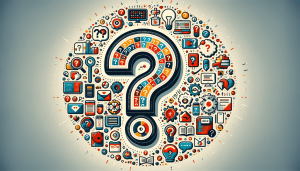Introduction:
Motivation, that elusive force guiding our actions, often appears as a mysterious entity. While most people muster the motivation to face each day, the underlying reasons for their actions remain complex. This article delves into six theories that unravel the driving forces behind human motivation, offering insights into the factors that propel us toward our goals.
What You Will Learn:
Explore six theories that illuminate the foundations of motivation:
- Instinct: Unravel the evolutionary underpinnings that suggest inherent behavioral patterns.
- Incentive: Understand how the promise of rewards fuels motivation, shaping our pursuit of goals.
- Drive: Delve into the theory of internal forces that impel individuals toward specific actions.
- Arousal: Explore the role of excitement and energy in motivating behaviors across various spectrums.
- Humanism: Uncover the hierarchy of needs proposed by psychologist John Maslow, influencing motivation.
- Expectancy: Grasp the concept that individuals shape their future based on self-perception, influencing motivation.
1. Instinct
While somewhat outdated, the instinct theory proposes that evolutionary programming guides human behavior. Explore this concept through examples like animal migration, assessing its applicability to complex non-biological motivations.
2. Incentive
Discover the incentive theory, which suggests that the pursuit of rewards drives motivation. Whether aiming for a promotion or other forms of recognition, understand how the perceived value of rewards intensifies motivation.
3. Drive
Delve into the drive theory, which posits that internal forces impel individuals toward specific actions. Examine the connection between physiological needs, such as cravings for specific foods, and the motivation to satisfy those needs.
4. Arousal
Explore arousal theory beyond its association with sex, encompassing excitement and energy in various forms. Understand how low energy levels prompt motivations for activities like watching an action movie, jogging, or seeking relaxation through activities like reading.
5. Humanism
Recognize the complexity of human motivations through the lens of humanism, which aligns with Maslow’s hierarchy of needs. Explore how basic necessities intertwine with intangible needs such as self-actualization, creative expression, and meaningful relationships.
6. Expectancy
Grasp the expectancy theory, emphasizing the influence of self-perception on motivation. Understand how individuals, based on their beliefs about themselves and the world, shape their futures and act accordingly.
Summary:
Explore the multifaceted theories that unveil the driving forces behind human motivation. From instinct and incentives to internal drives and self-perception, this article offers a comprehensive understanding of the complex nature of motivation, empowering individuals to navigate their paths with newfound insights.
FAQ Section:
How does the instinct theory explain human motivation?
The instinct theory suggests that evolutionary programming guides human behavior, unraveling inherent behavioral patterns.
What is the incentive theory, and how does it impact motivation?
The incentive theory posits that the pursuit of rewards drives motivation. It explores how the perceived value of rewards intensifies the motivation to achieve goals.
How does the drive theory connect internal forces with motivation?
The drive theory suggests that internal forces impel individuals toward specific actions. Explore the connection between physiological needs and the motivation to satisfy those needs.
What does arousal theory encompass beyond its association with sex?
Arousal theory extends beyond sex to include excitement and energy. Discover how arousal motivates behaviors like watching action movies, jogging, or seeking relaxation.
How does humanism relate to motivation, according to John Maslow’s hierarchy of needs?
Humanism aligns with Maslow’s hierarchy of needs, recognizing the interplay between basic necessities and intangible needs like self-actualization, creative expression, and meaningful relationships.
What is the expectancy theory, and how does it influence motivation?
The expectancy theory emphasizes the influence of self-perception on motivation. Individuals shape their futures based on beliefs about themselves and the world, impacting their motivation.


